MISSION AND VISION
THE MISSION
The mission of the Raymond M. Alf Museum of Paleontology is to foster the study of paleontology within The Webb Schools community, regionally, nationally, and internationally through its field work, collections, research, education, exhibits and communication.
THE VISION
The vision of the Raymond M. Alf Museum of Paleontology is to expand one’s knowledge of the history of life and to inspire one’s appreciation of their moment in time.
HISTORY
The Raymond M. Alf Museum of Paleontology, located on the campus of The Webb Schools, is the only nationally accredited museum in the USA on a high school campus. Also, the Alf Museum provides a unique research program for Webb students where they study fossils they find on collecting trips and publish the results of their research in collaboration with museum staff, a unique program for secondary school students only offered at Webb.
The museum got its start when Raymond Alf, a teacher who came to Webb in 1929 after establishing himself as a national collegiate track champion, took an interest in paleontology as a hobby. In 1936 on a trip to collect fossils in the Mojave Desert, Alf and his student Bill Webb ’39 found a mammal skull. They brought it to renowned paleontologist Chester Stock at California Institute of Technology, who identified it as a new 15 million year old species of fossil peccary or pig. This discovery inspired Alf to undertake a life-long quest to elucidate the history of life on Earth through the study of fossils, which he called “the documents of life.”
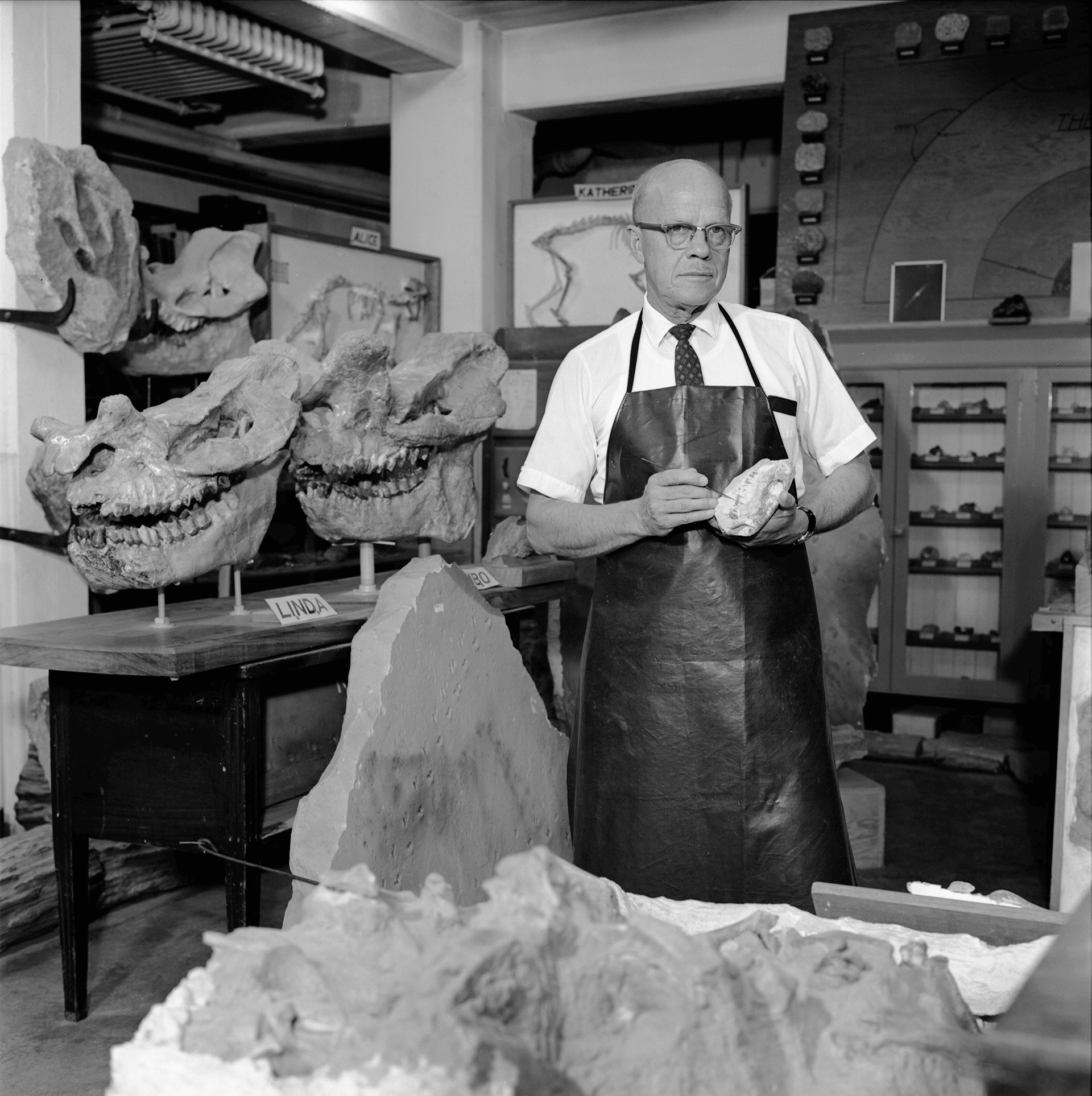
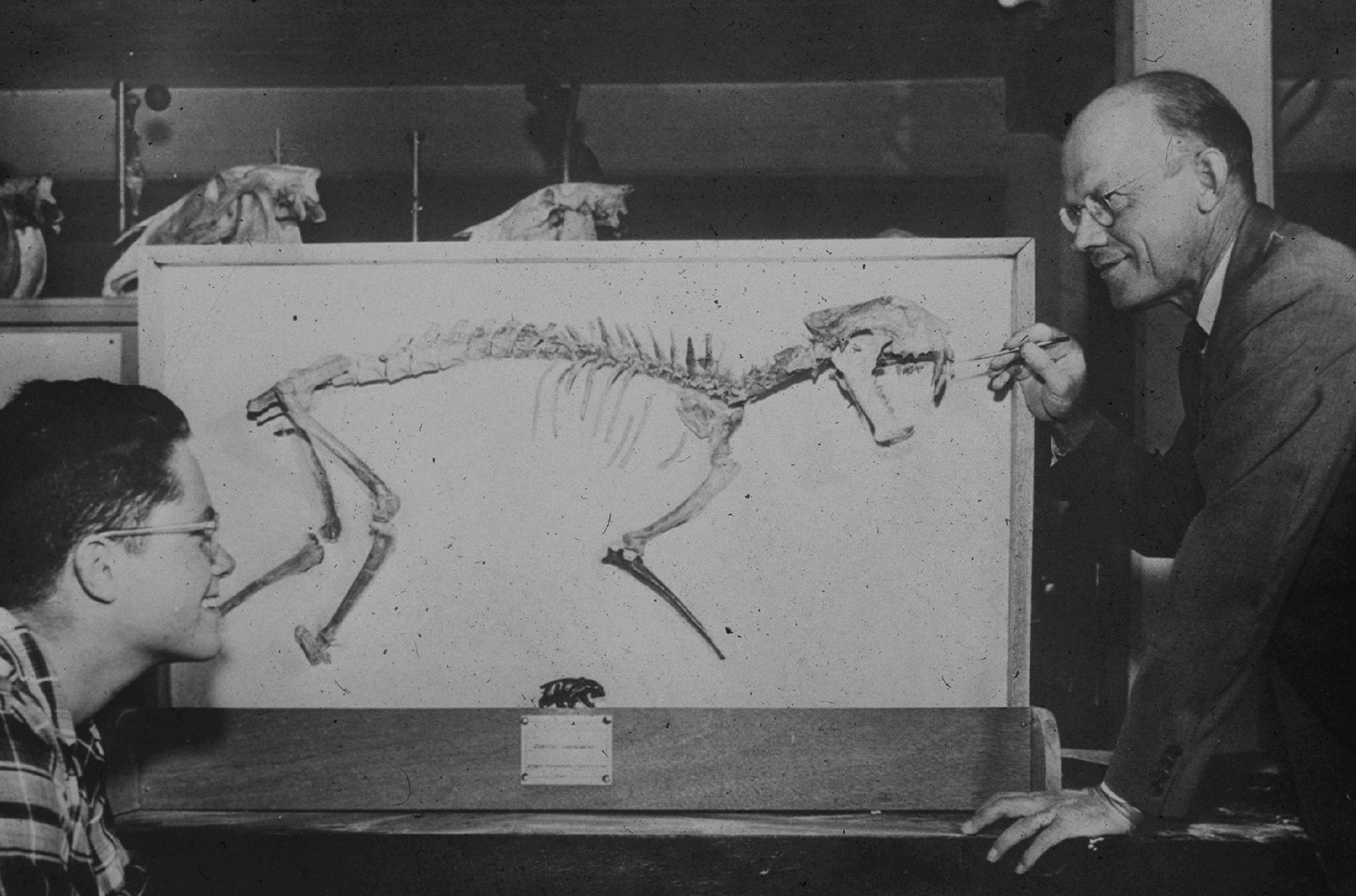
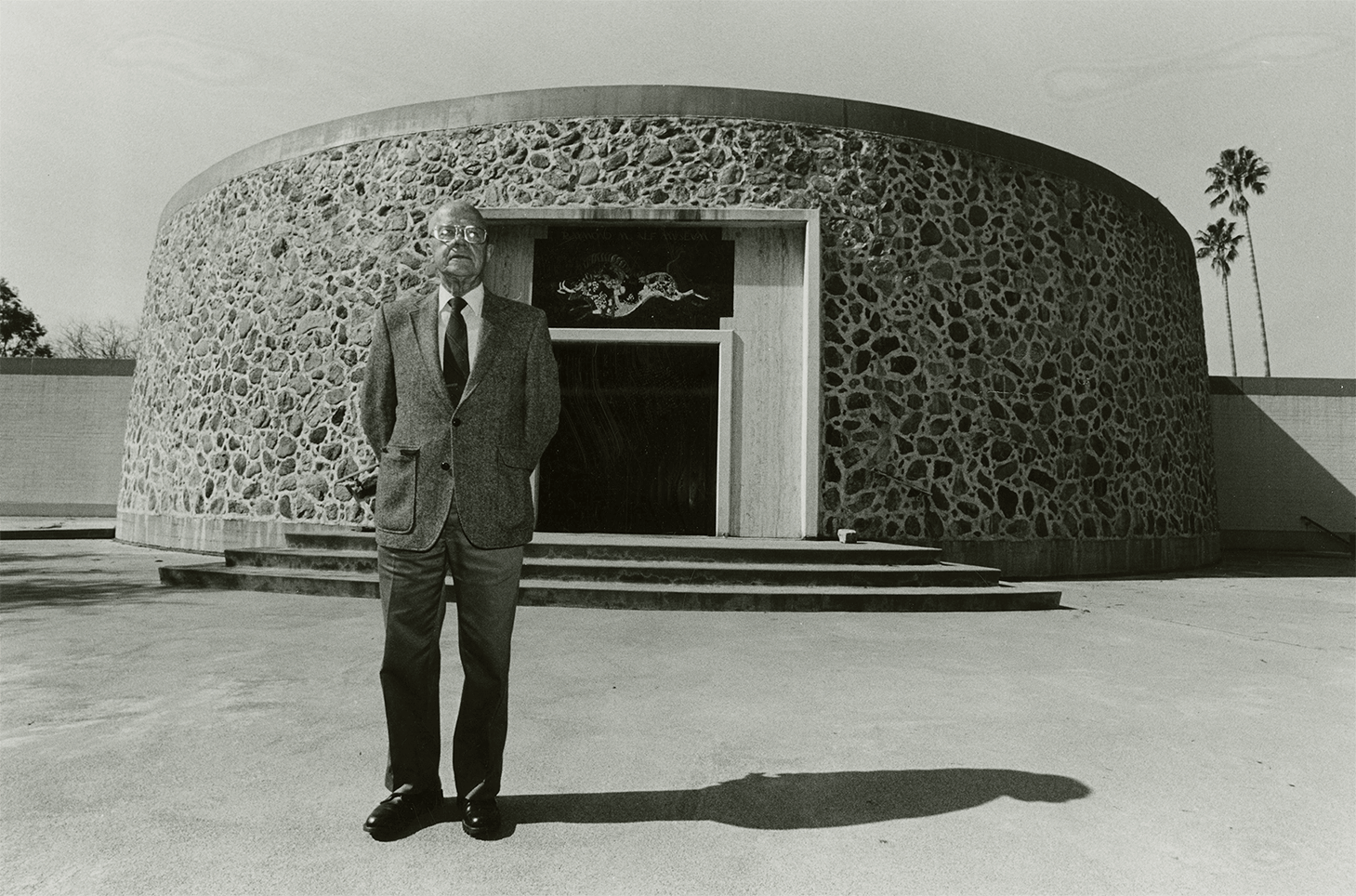
From then on, every chance he could, Alf led Webb students on fossil collecting trips (now called “peccary trips”) on weekends, school breaks and summer vacations. Soon, a large collection of rare and well preserved specimens was stored and displayed in Alf’s classroom in the basement of the school’s library. Alf was an extremely enthusiastic and creative educator who inspired in his students a deep appreciation of their place in the history of the planet and challenged them with a fundamental question “what are you going to do with your moment of time.” Three of Alf’s students were named finalists in national science talent searches and many went on to distinguished careers as scientists. These include paleontologists Malcolm McKenna ’48, Dwight Taylor ’49, David Webb ’53 and Dan Fisher ’67.
By the 1960s, the need to establish a permanent museum at Webb was evident as fossils found on Alf’s peccary trips filled all available storage spaces. A particular need was to find a suitable area to display the large number of fossil trackways, which were widely recognized as one of the most scientifically significant track collections in the world. Funds were raised mainly through gifts from parents and alumni to construct the current museum, which was dedicated in 1968 to the museum’s founder and first director, Dr. Raymond Alf. With Alf’s retirement, Grant Meyer ’53 returned to Webb to become the museum’s second director. During his 14 years of leadership, the museum became a nonprofit corporation with its own Board of Trustees, and an endowment was established to help support the museum’s programs.
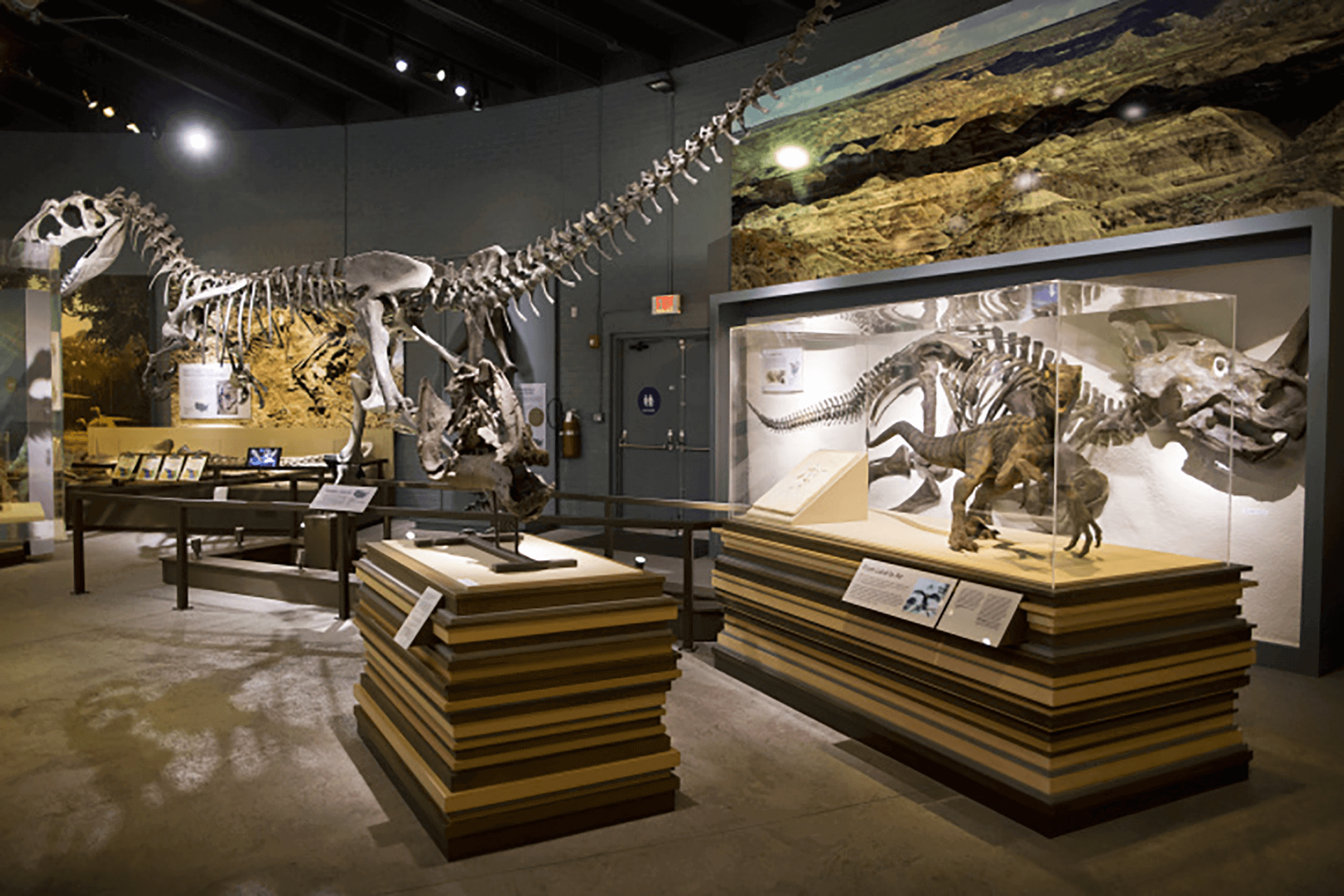
In the early 1990s, under the leadership of the museum’s third director, Don Lofgren, a major drive was to upgrade the museums programs and operations to conform to national professional standards. This work was completed in 1998, and the museum gained national accreditation from the American Association of Museums, an honor less than 5 percent of the museums in the USA can claim. Alf’s great tradition of taking Webb students into the field to collect fossils was expanded by the establishment of an advanced research science curriculum, where students studied the fossils they collected. Thus, students now work with museum staff to co-author research articles that are published in regional and international scientific journals, with more than 50 student co-authored papers published as of 2023. With the addition of fully equipped research and fossil preparation labs, the museum’s ability to support the research work of Webb students and museum staff is unsurpassed. Although museum founder Raymond Alf passed away in 1999, it safe to say he would be amazed how his once modest paleontology program has grown into a nationally accredited and internationally recognized scientific research institution.
